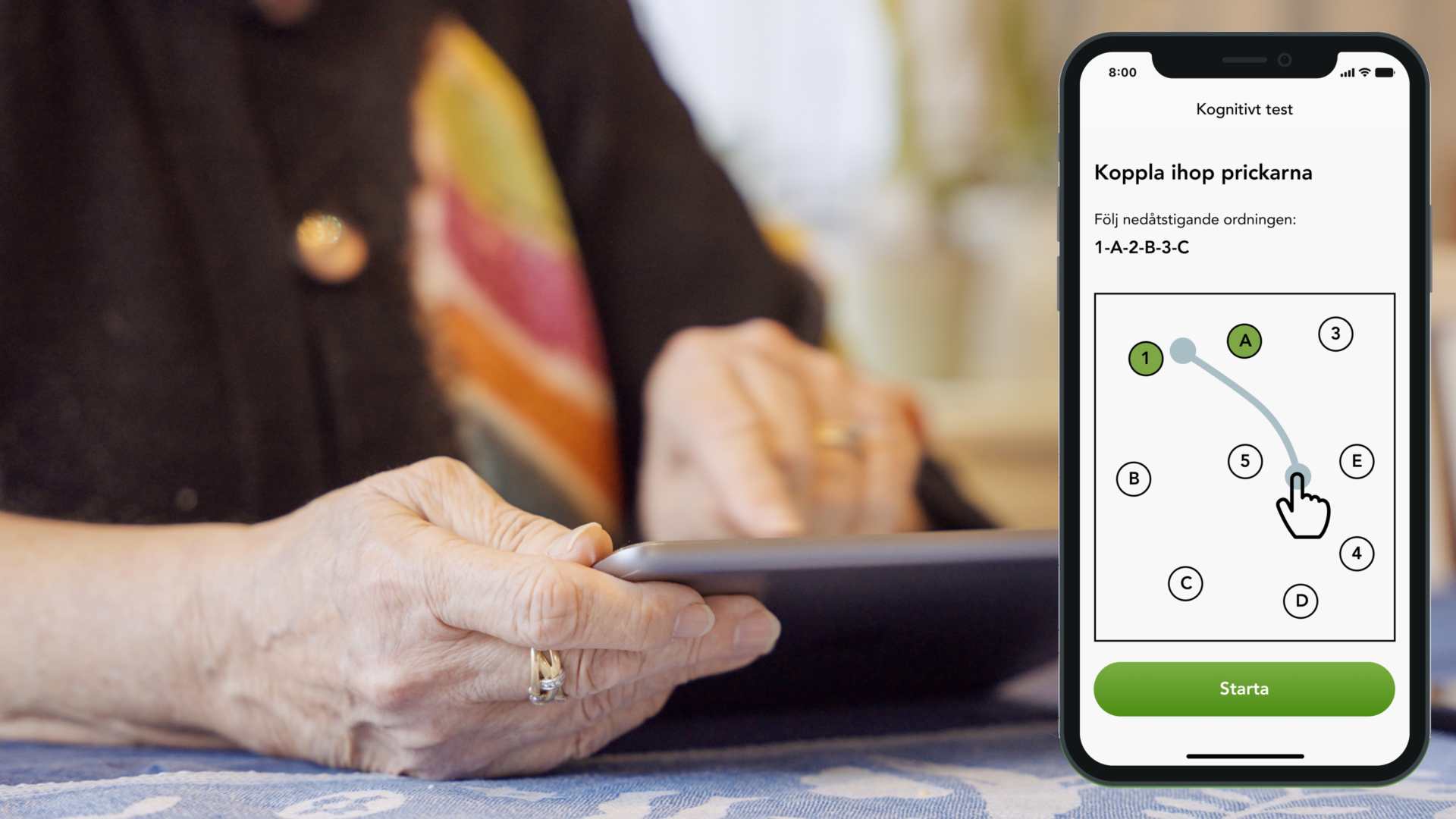2023/02/23

A recently published study conducted at Umeå University in Sweden has evaluated a digital method for investigating suspected early dementia, such as Alzheimer’s disease. The new method is based on a digitization and further development of the established frameworks that are part of a comprehensive investigation. Since end of last year, an investigation can be started from home – initiated by the patients themselves or with the help of close relatives. The initiative is an important piece of the puzzle to enable earlier diagnosis and thus support with the right care and treatment.
144 people participated in the study at Umeå University with the aim of evaluating the new digital method. People with different educational backgrounds, IT habits, gender, etc. completed tests of several different cognitive functions with the help of a tablet. In the study, the patients were also allowed to carry out testing from home. In addition to valuable data on the test’s precision and effect of e.g. education level, the study showed that testing at home gave equivalent results to testing at a clinic.
– The digital test has previously shown good precision for identifying possible disease at an early stage. The latest research results strengthen the method and speak for digital assessment at a clinic or from home. Better accessibility is of great value to those individuals who need support and treatment, but also to be able to reassure those who carry unnecessary anxiety, says Victor Bloniecki Kallio, MD / PhD, lead author of the research study.
The tool has also previously been evaluated clinically at Karolinska University Hospital in Stockholm. The Swedish MedTech company Geras Solutions is behind the new method that has been developed based on national guidelines and in collaboration with a number of specialist clinics and primary care centers from all over the country. The aim is to establish a new digital standard for the clinical procedure. In addition to cognitive tests, a comprehensive review of medical history, risk factors, etc. is carried out as well as screening for other conditions that can cause similar symptoms as for early dementia. Relatives are also involved to contribute digitally with their view of symptoms development, which is a very important part of the assessment.
Improved patient access is now made possible via “Minnesmottagningen.se” (“TheMemoryClinic.se”), which is the world’s first digital memory clinic. The assessment is initiated in a video call with a nurse who introduces the app where the tests are done. When this is completed, the results are reviewed by a physician that also has a follow-up meeting with the patient. Depending on the results, supplementary examinations such as X-rays and blood tests are then carried out via referral.
Minnesmottagningen.se is now reimbursed by the Swedish public healthcare system as an initiative to increase accessibility and thus be able to ensure that more people receive the right care and treatment on time.
– We know that many people do not receive proper assessments for experienced cognitive impairment. By taking advantage of new technology supported by the latest research, we can contribute in an area where the needs are enormous. Improved efficiency will also be crucial to being able to meet the needs of the future when new treatments become available, and the motivation to seek help early becomes even more clear, says Mårten Fällman, Chief Medical Officer at Minnesmottagningen.se
The study at Umeå University also explored IT habits and ease of use. More than 90% of the participants, who were in their 70s, indicated that they had a good habit of using tablets and digital technology. An appreciated advantage with digitized investigation is that it preserves integrity and de-dramatizes an assessment that can sometimes be seen as stigmatizing.
Further clinical research is being conducted into how Geras Solutions and other innovative tools can be integrated into healthcare as part of the innovation environment PREDEM, run by Karolinska Institutet. Examples of new technology are blood-based biomarkers for Alzheimer’s disease, which is also expected to be a crucial component in finding the disease at the right time.
– Digital tools for the investigation of suspected dementia form an important complement to traditional investigation routes and methods. This is particularly important as we soon expect new drugs to become available for the treatment of early stage Alzheimer’s disease. This will mean an increased burden on memory clinics as well as on primary care. It is very welcome new scientific studies such as this one from Umeå, which strengthens the clinical evidence for new methods, says Linus Jönsson, Professor of Health Economics at the Department of Neurobiology, Health Sciences and Society at Karolinska Institutet.
The study is published in Journal of Prevention of Alzheimer’s Disease – Link
For more information:
Victor Bloniecki Kallio
[email protected], 0707268220
Anna Nordström, Responsible for the study site at Umeå University
[email protected], 0706064249
Mårten Fällman
[email protected], 0703317488
Rickard Forsman, CEO at Geras Solutions
[email protected], 0737075918
Linus Jönsson
[email protected], 0708673522